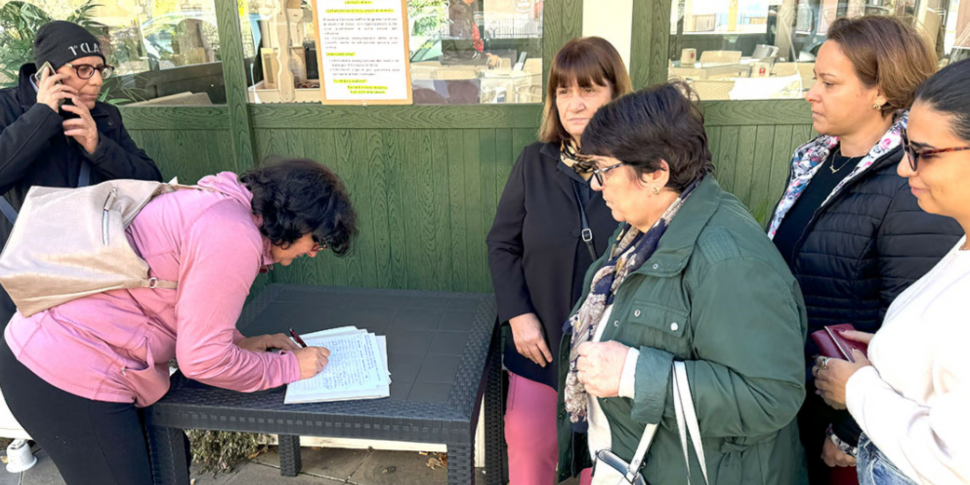Table of Contents
A whistle-blower complaint started with a public interest tip, raising suspicions about conflict between civic groups
Suspicions of proxy surgery and ghost surgery at Yonsei Sarang Hospital are taking on a complicated aspect, spreading beyond medical ethics issues to suspicions of collusion and conflict between civic groups. The hospital denied all charges and took strong action, but the controversy surrounding the incident is intensifying.
This report Finance TodayIt was written based on data from
A new accusation following a public interest tip-off
This incident was triggered by a public interest tip from Kim Sun-hwan, Secretary General of the People’s Livelihood Countermeasures Committee (hereinafter referred to as “People’s Livelihood”). Secretary General Kim revealed that Director Yong-gon Yong of Yonsei Sarang Hospital ordered illegal surrogate surgeries to employees of a medical device company and manipulated medical records.
However, Secretary General Kim recently took a new turn by accusing Yonsei Sarang Hospital Director Yong-gon Yong of defamation, threats, and breach of trust. Secretary General Kim claimed, “Yonsei Sarang Hospital and some civic groups urged the cancellation of the complaint through financial persuasion and pressure.”
In particular, he revealed that Pansaryeon (Union of Civil Society Organizations) sent him a fact-checking interview official at the request of Director Yong-gon Ko and requested that the complaint be canceled. In response to this, Secretary-General Kim said, “The Pan-Social Alliance and the hospital moved based on mutual interests,” and said that they received various forms of pressure after rejecting the request.
The reaction of the entire society, and silence
While Secretary-General Kim’s claims were raised, Pan-Soviet Union Chairman Lee Gap-san was asked a related question, but ended the call by replying, “I don’t want to say any more.” Afterwards, he promised a later response to a reporter’s text message, saying, “I’m on a business trip,” but no specific rebuttal has been provided yet.
As suspicions of collusion with civic groups arose, issues of purity and reliability of public interest reports came to the fore. In particular, the claim that some groups pressured public interest informants through collusion with hospitals foreshadows the possibility of leading the case in a new direction.
Yonsei Sarang Hospital’s hard-line response faces criticism
Meanwhile, Yonsei Sarang Hospital completely denies all charges and is maintaining a strong stance against media reports related to public interest tips. The hospital sent a content certificate to the media that reported on the surrogate surgery suspicion, saying, “The case is under trial,” requesting that the article be modified or deleted.
However, these actions are being criticized as being seen as an infringement on press freedom. As the conflict between civic groups and hospitals increases the likelihood that it will be interpreted as an attempt to conceal problems within the medical community, some point out that it obscures the essence of the incident.
The medical community and civic groups reveal structural problems
This incident clearly reveals structural problems in the medical community. The conflicts and pressures faced by public interest informants and the credibility issues of some civic groups raise the need for social discussion that goes beyond simply individual ethical issues.
Experts pointed out, “There is an urgent need for institutional mechanisms to protect public interest informants and ensure transparency in the medical community and civic groups.” The outcome of this case is expected to be an important test for restoring trust in the medical community and civil society.
Article entry: 2024/11/19 [11:16]
Last edited: ⓒ Sisauri Newspaper

What are the potential consequences for medical professionals involved in unethical practices at Yonsei Sarang Hospital?
Hello and welcome to our online discussion on world-today-news.com! Today, we have the pleasure of speaking with two distinguished guests about a recent whistle-blower complaint that has rocked the medical community in South Korea. Joining us is Ms. Hyein Park, a respected medical ethicist and Dr. Jaehyun Kim, a well-known public health advocate.
Ms. Park, could you please tell us your thoughts on the current situation at Yonsei Sarang Hospital and the surgical practices that have come under scrutiny?
Ms. Park: Thank you for having me. The situation at Yonsei Sarang Hospital is indeed concerning. The accusations of illegal surrogate surgeries and ghost surgeries have raised serious questions about medical ethics and patient safety. It’s essential for medical professionals to maintain the highest standards of care and transparency, and any violations of these principles should be addressed promptly and appropriately.
Dr. Kim, what are your thoughts on the role of civic groups in this matter? We understand that there are allegations of collusion and pressure being exerted on public interest informants.
Dr. Kim: I believe civic groups play a vital role in holding institutions like hospitals accountable and ensuring transparency. However, in this case, the allegations of collusion and financial influence are troubling. It’s essential for these groups to remain independent and impartial when handling matters of public interest. This episode highlights the need for clear guidelines and safeguards to protect whistle-blowers and maintain the integrity of civic engagement.
Ms. Park, do you think there are structural problems within the medical community that may have contributed to this situation?
Ms. Park: Absolutely. There are sometimes significant pressures in the medical field that can lead to unethical practices. These range from financial incentives to peer pressure. It’s crucial for hospitals and policymakers to address these structural issues and create a supportive environment for medical professionals to raise concerns without fear of retaliation.
Dr. Kim, what do you think needs to happen next to restore trust in the medical community and civil society?
Dr. Kim: I agree with Ms. Park that address
![[시사우리신문] Suspicion of proxy surgery at Yonsei Sarang Hospital expands into controversy over ‘collusion with civic groups’ [시사우리신문] Suspicion of proxy surgery at Yonsei Sarang Hospital expands into controversy over ‘collusion with civic groups’](http://www.urinews.co.kr/imgdata/urinews_co_kr/202411/2024111915048516.jpg)

